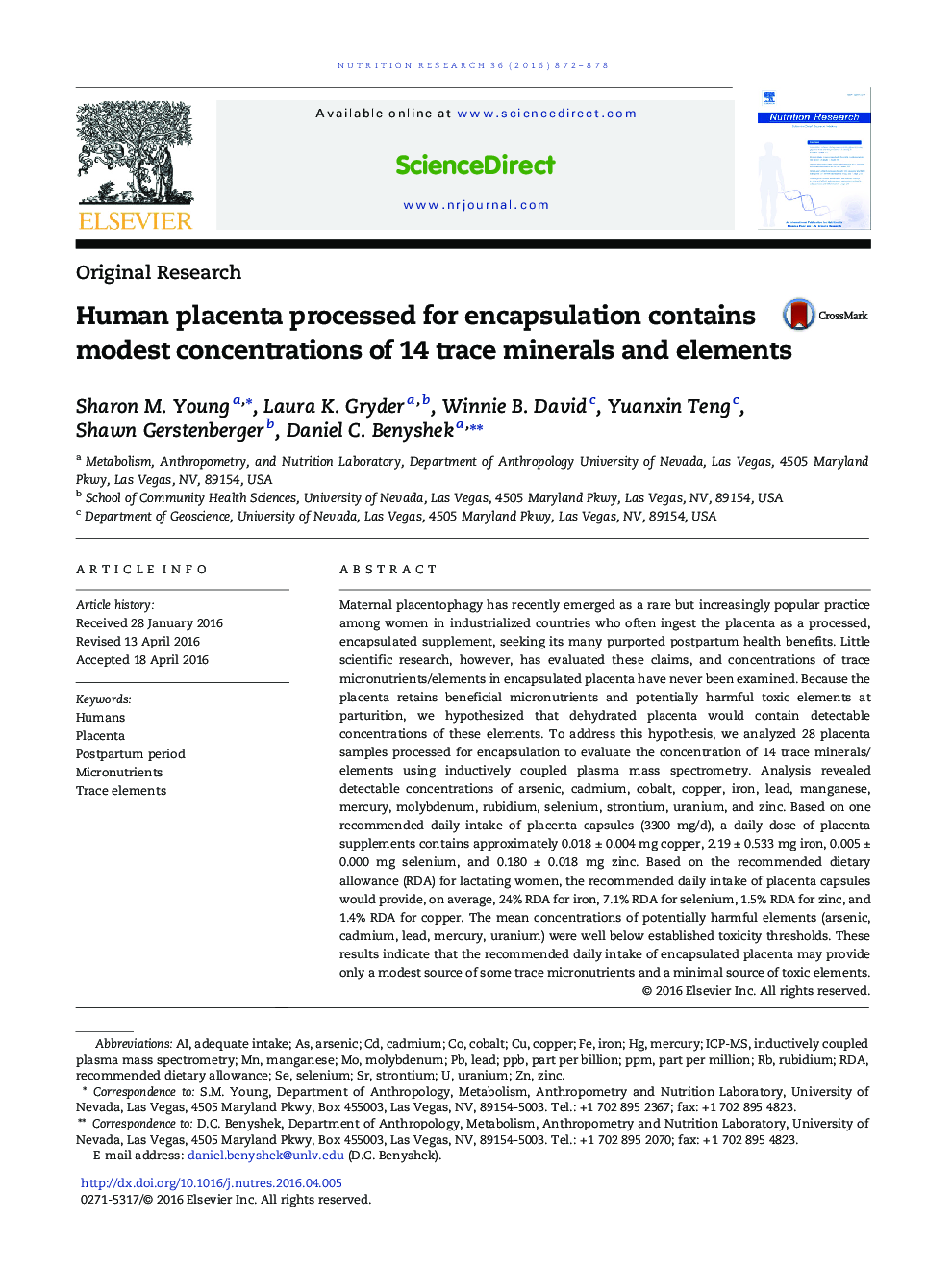| کد مقاله | کد نشریه | سال انتشار | مقاله انگلیسی | نسخه تمام متن |
|---|---|---|---|---|
| 2808823 | 1157971 | 2016 | 7 صفحه PDF | دانلود رایگان |
Maternal placentophagy has recently emerged as a rare but increasingly popular practice among women in industrialized countries who often ingest the placenta as a processed, encapsulated supplement, seeking its many purported postpartum health benefits. Little scientific research, however, has evaluated these claims, and concentrations of trace micronutrients/elements in encapsulated placenta have never been examined. Because the placenta retains beneficial micronutrients and potentially harmful toxic elements at parturition, we hypothesized that dehydrated placenta would contain detectable concentrations of these elements. To address this hypothesis, we analyzed 28 placenta samples processed for encapsulation to evaluate the concentration of 14 trace minerals/elements using inductively coupled plasma mass spectrometry. Analysis revealed detectable concentrations of arsenic, cadmium, cobalt, copper, iron, lead, manganese, mercury, molybdenum, rubidium, selenium, strontium, uranium, and zinc. Based on one recommended daily intake of placenta capsules (3300 mg/d), a daily dose of placenta supplements contains approximately 0.018 ± 0.004 mg copper, 2.19 ± 0.533 mg iron, 0.005 ± 0.000 mg selenium, and 0.180 ± 0.018 mg zinc. Based on the recommended dietary allowance (RDA) for lactating women, the recommended daily intake of placenta capsules would provide, on average, 24% RDA for iron, 7.1% RDA for selenium, 1.5% RDA for zinc, and 1.4% RDA for copper. The mean concentrations of potentially harmful elements (arsenic, cadmium, lead, mercury, uranium) were well below established toxicity thresholds. These results indicate that the recommended daily intake of encapsulated placenta may provide only a modest source of some trace micronutrients and a minimal source of toxic elements.
Journal: Nutrition Research - Volume 36, Issue 8, August 2016, Pages 872–878
